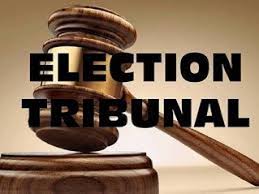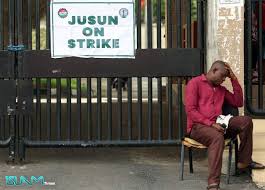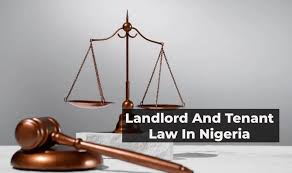Tribunal upholds Aiyedatiwa’s victory, describes petitions speculative
By Alaba Olusola Oke
The Ondo State Governorship Election Petition Tribunal on Wednesday in Akure upheld the victory of Gov. Lucky Aiyedatiwa in the Nov.16, 2024 election and declared petitions against him as speculative.
In a unanimous judgment, the three-member panel headed by Justice Benson Ogbu, said that the petitioners were not able to prove the allegations of over voting, non-compliance with Electoral Act 2022 “beyond reasonable doubt.”
Justice Benson Ogbu, Justice Imelda Etiape, and Justice Daurabu Sikkam, affirmed Aiyedatiwa’s victory and dismissed all petitions filed against him.
The News Agency of Nigeria (NAN) reports that the tribunal, which began sitting on Jan. 31, received five petitions challenging the outcome of the election.
The Independent National Electoral Commission (INEC) had declared Aiyedatiwa, the candidate of the All Progressives Congress (APC), winner of the election.
The five petitioners were seeking the nullification of the election on grounds of non-compliance with the provisions of Electoral Act.
The petitioners are: Action Alliance (AA) and its candidate, Mr Abdullahi Olowokere; and the Social Democratic Party (SDP) and its candidate, Chief Bamidele Akingboye.
Others are: Peoples Democratic Party (PDP) and its candidate, Mr Agboola Ajayi; the Allied Peoples Movement (APM) and its candidate, Kolawole Ogunfeyimi; and African Democratic Congress (ADC) and its candidate, Mr Adeyemi Nejo.
The respondents are: APC, Aiyedatiwa and his running mate, Mr Olayide Adelami; and INEC.
Mr Ishaka Dikko and Bankole Akomolafe, the PDP’s counsel, argued that the election was marred by substantial non-compliance with the Electoral Act and asked the tribunal to void Aiyedatiwa’s certificate of return.
On the other hand, Aiyedatiwa, his deputy, Adelami and INEC enjoined the tribunal to dismiss the petitions.
The tribunal, however, said that the allegation of vote buying could not be substantiated and supported with facts.
It added that the petitions lacked merit that could stand as a fact to nullify the election’s outcome as being asked by the petitioners.
The AA, through its National Chairman, Mr Adekunle Omoaje, also petitioned the tribunal, asserting that Aiyedatiwa’s declaration as the winner was illegal and void due to non-compliance with the provision of Electoral Act and the 1999 Constitution.
Omoaje claimed that the party was not permitted to nominate its legitimate governorship candidate, alleging that INEC imposed Akinnuli Omolere as the party’s candidate.
On AA alleged exclusion of its candidate from the ballot paper on the election day, the panel held that the party lacked locus standi to initiate the petition because the party had no candidate in the said election.
According to the panel, AA should have instituted a case at a high court to mandate INEC to submit its alleged rightful candidate for the election instead of bringing the matter to the tribunal which has no jurisdiction on pre-election matter.
Also, on APM’s allegation of evidence corrupt practices during the election, the panel struck out the petition, saying it was inconsequential because there were no material facts to support the claim.
The tribunal also said that SDP failed to prove its allegations of over voting and corrupt practices by INEC in favour of APC.
It added that there was nothing shown by SDP and its candidate to prove that there was over voting nor was able to tender evidence that there was falsification of the election’s result as claimed in its petition.
The tribunal stated that elections are not determined by public opinion or propaganda and described the petitions as a waste of the tribunal’s time and taxpayers’ money, noting that SDP and its candidate failed to provide evidence for any of the relief sought.
The tribunal further stated that the petitions instituted by ADC and its candidate were still-born and dead on arrival because the petitioners could not link a single polling unit to the alleged electoral malpractices.
It also unanimously delivered its judgment on the petitions filed by PDP and its governorship candidate, Agboola Ajayi.
PDP submitted its petition on three grounds of allegation of fake academic qualifications of deputy governor, Olayide Adelami, non-compliance with electoral laws by INEC and that Aiyedatiwa did not score the lawful counts of votes during the election.
The tribunal said that PDP presented 22 witnesses during the proceedings of the tribunal’s sittings.
It, therefore, dismissed allegation of non-academic qualification levelled against the deputy governor since it was a pre-election matter which had been decided by apex court, stating that “the petition should not have been filed at all.”
The tribunal noted that the statistics and forensic expert’s evidence brought by PDP was faulty because the said expert could not give any identification and evidence to substantiate his expertise, subsequently, allegation of non-compliance with the Electoral Act was dismissed.
It said that the petitioners’ documents presented as their evidence could not be verified by the tribunal and that the petitioners could not also tender evidence of allegation of over voting during the election.
The three-member panel, therefore, dismissed all the petitions for lack of merit. (NAN)(www.nannews.ng)
Edited by Tayo Ikujuni














